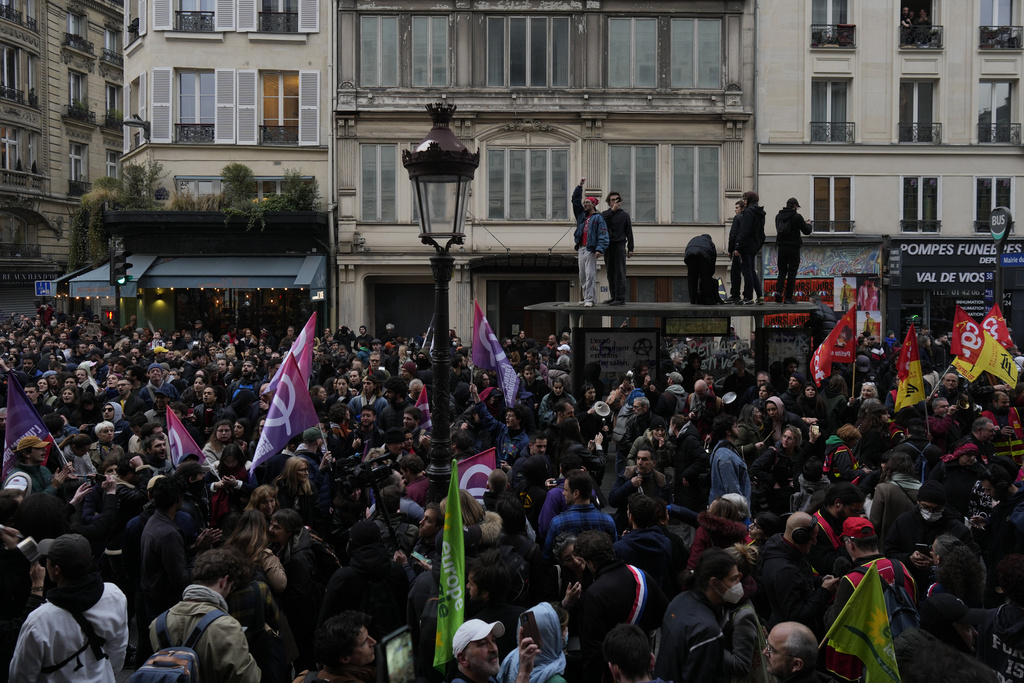In a much anticipated speech on Monday, French President Emmanuel Macron announced shortly after the Constitutional Council’s approval that he will go ahead with his pension reform despite nationwide protests.
Macron announced that the controversial pension reform would be enacted in the autumn, then admitted that the law in question had not been approved by the people with a vote in parliament and that it was clearly a reform that would require effort. He claimed the reform was “necessary.”
In a speech that lasted no more than 15 minutes, the French head of state stressed that he did not want to remain deaf to the call for social justice or for a renewal of democratic life in France. He also stressed his rejection of any radical and extremist view of the social crisis because he says it is not the solution.
“Anger is also due to the feeling that some do their share but are not compensated for their efforts in public services or public funds,” said Macron. “All this anger was expressed by many French people and in their immense majority in a calm and respectful manner. No one, and especially not me, can remain deaf to this demand for social justice and for our democratic life to be renovated, particularly expressed by our youth.”
Despite Macron openly admitting he jettisoned democracy to pass his controversial reform, which nearly every poll showed was opposed by approximately 70 percent of the population, the EU has not criticized him for democratic “backsliding.” In contrast, countries like Hungary, which passes laws through parliament first, still has billions of its EU funds frozen.
Macron is doing more than raising the retirement age from 62 to 64. In his speech, he said he wants to base the pension reform on three pillars. The first is work, and to this end, Macron would reform vocational schools and put to work those who are not on unemployment benefits and have no income, but who are on state benefits.
The second project is to reform the French justice system and to strengthen controls on illegal immigration, as the head of state said there is no freedom without laws and without sanctions against those who violate the rights of others. He has made similar promises in the past, including bringing the deportation rate to “100 percent.” Instead, his promises have failed to materialize. France has hit record levels of legal and illegal immigration, and those who criticize his lack of immigration controls face legal action and even imprisonment. Macron is also moving forward with a measure to flood the countryside, an electoral stronghold of his political rivals, with migrants.
Macron said the judiciary will be strengthened, with more than 10,000 judges and other judicial staff and 200 new gendarmerie brigades to fight all forms of crime and fraud.
In his speech, Macron said his third task will be promoting a “better life” for the French. He said he is aware that many people are frustrated and angry because they are not rewarded for their efforts in terms of aid and effective public services, and he wants to ensure that the quality of life of the population is improved.






